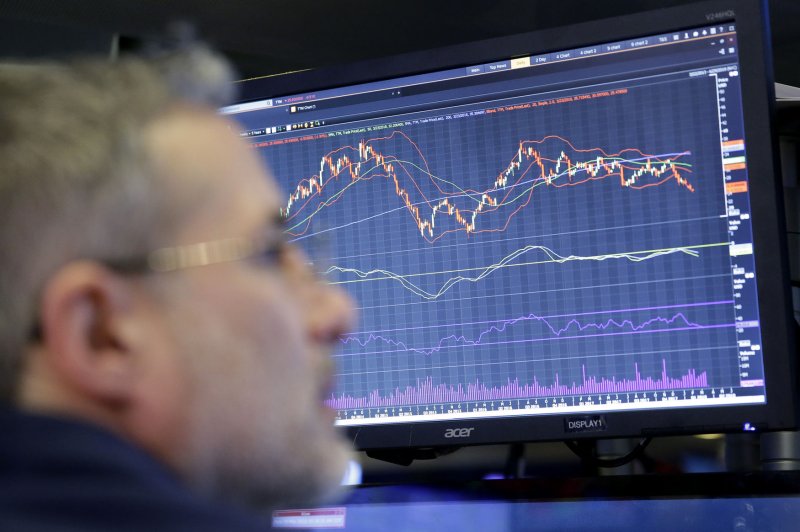Crude oil prices snap their streak after U.S. President Donald Trump uses his Twitter account to complain that prices are artificially high. File Photo by John Angelillo/UPI |
License Photo
April 20 (UPI) -- With the U.S. president trying his hand at influencing commodity markets, the price of oil turned lower on Friday after a steady streak of gains.
Crude oil prices are up about 2 percent on the week. The price jumped mid-week when the U.S. Energy Information Administration reported that, despite an increase in U.S. oil production, stock levels were declining. The drop was supported by higher refinery activity and lower imports of oil into the domestic market.
Oil prices got another jolt earlier this week when some members of the Organization of Petroleum Exporting Countries expressed support for a price of oil above the $80 mark. Through his Twitter account, U.S. President Donald Trump said that, with production levels as they are, "oil prices are artificially very high."
The price for Brent crude oil was down 0.53 percent as of 9:15 a.m. EDT to $73.39 per barrel. West Texas Intermediate, the U.S. benchmark for the price of oil, was down 0.42 percent to $68.00 per barrel.
Trump has been a champion for the U.S. oil sector. His administration published a notice Friday in the Federal Registry that marked the first step toward opening parts of the Alaska National Wilderness Refuge up to oil and gas drillers.
Members of a committee monitoring the OPEC-led effort to balance the market are meeting in Vienna to review an agreement now in its second year. Paal Kibsgaard, the chairman and CEO of oilfield services company Schlumberger, said Friday that OPEC's policy was working as designed.
"Looking at the global oil market, the absence of global stock builds in the first quarter, supported by the OPEC- and Russia-led production cuts, confirm that the oil market is in balance," he said in a statement.
Russia is the largest contributor to the agreement that's not a member of OPEC. U.S. oil production, meanwhile, is countering OPEC to a degree, but this week's inventory data suggest the influence is not as great as anticipated. Kibsgaard added that U.S. production challenges are starting to emerge.
For the broader economy, markets could be influenced throughout the day by comments made during the annual Spring Meeting of the International Monetary Fund and the World Bank. The IMF this week said it expected the global economy to do well, but growth could be undermined by simmering trade tensions between some of the world's leading economies.















